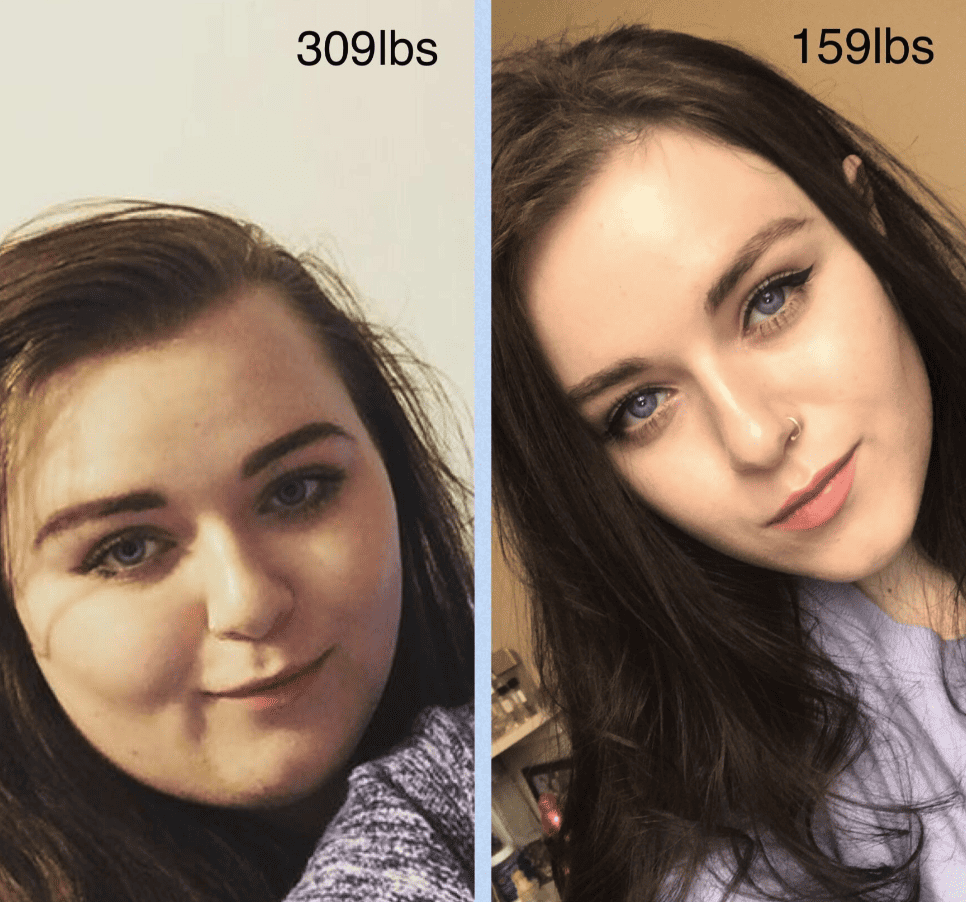How to Create a Weight Loss Plan that Promotes Overall Wellness
Achieving weight loss while promoting overall wellness is a goal that resonates with many individuals in Sarasota, Florida. However, it’s essential to understand that effective weight loss extends beyond just shedding pounds. It involves adopting a holistic approach that encompasses physical, mental, and emotional well-being.
This article aims to guide you on how to create a personalized weight loss plan that prioritizes overall wellness, leading to sustainable and healthy results.

Understanding Weight Loss and Wellness
Weight loss is a concept that is often misunderstood as simply shedding pounds to achieve a slimmer physique. However, its significance goes beyond cosmetic goals. True weight loss entails adopting a lifestyle that prioritizes health and well-being. It is about making positive changes to enhance one’s overall physical, mental, and emotional health.
At its core, weight loss is about striving for a healthy body weight that is sustainable and appropriate for an individual’s age, gender, and height. It involves achieving a balance between the energy consumed through food and beverages and the energy expended through daily activities and exercise. This equilibrium is crucial for maintaining a healthy weight and preventing the development of chronic diseases related to obesity.
While weight loss is an essential aspect of overall wellness, it is just one piece of the puzzle. True well-being encompasses various dimensions, and achieving balance in all of them is essential for leading a fulfilling and healthy life.
- Nutrition: A key pillar of overall wellness is maintaining a balanced and nutritious diet. Consuming a variety of nutrient-rich foods provides the body with essential vitamins, minerals, and macronutrients necessary for optimal functioning. A well-balanced diet not only supports weight loss efforts but also strengthens the immune system, promotes better digestion, and enhances energy levels.
- Exercise: Regular physical activity is vital for both weight loss and overall wellness. Engaging in regular exercise not only burns calories but also strengthens muscles, improves cardiovascular health, and boosts mood. Finding enjoyable physical activities helps individuals stay motivated and committed to their weight loss and wellness goals.
- Mental Health: Weight loss and overall wellness are intertwined with mental well-being. Stress, anxiety, and other mental health issues can influence eating habits and hinder progress in weight loss. Prioritizing mental health through mindfulness practices, stress management techniques, and seeking support from therapists or counselors can significantly impact the success of a weight loss journey.
- Sleep: Often overlooked, adequate and restful sleep plays a vital role in weight loss and overall health. Lack of sleep can disrupt hormones related to appetite, leading to overeating and weight gain. Prioritizing quality sleep is essential for weight management and overall wellness.
- Self-Care: Taking time for self-care is crucial for maintaining a positive mindset and staying motivated during a weight loss journey. Engaging in activities that bring joy and relaxation, such as reading, spending time in nature, or practicing hobbies, contributes to overall well-being.
- Hydration: Drinking enough water is essential for weight loss and overall health. Proper hydration supports metabolism, aids in digestion, and helps control hunger.
Understanding weight loss as part of overall wellness emphasizes the importance of adopting a holistic approach to health. Focusing solely on the number on the scale may lead to short-term success but may not sustain in the long run. By prioritizing overall wellness and making gradual, sustainable lifestyle changes, individuals can achieve their weight loss goals while fostering better health and happiness in all aspects of life.
Assessing Your Current Health Status
Embarking on a weight loss journey without understanding your current health status is akin to setting sail without a map. A comprehensive health assessment lays the foundation for a successful and safe weight loss plan. Before making any significant changes to your diet or exercise routine, it is crucial to consult with Dr. Nancie and Dr. Alphonso.
- Medical Check-ups: Scheduling a medical check-up with Dr. Nancie and Dr. Alphonso is the first step in assessing your health status. During the check-up, your doctor will review your medical history, evaluate your current health condition, and inquire about any pre-existing medical conditions or medications you are taking. This information helps identify potential health risks and ensures that your weight loss plan is tailored to your individual needs.
- Body Measurements: In addition to medical check-ups, taking body measurements is essential in understanding your current physical condition. Measurements such as weight, height, waist circumference, and body mass index (BMI) provide valuable insights into your overall health and body composition. Tracking these measurements over time will help you gauge your progress and make necessary adjustments to your weight loss plan.
- Body Composition Analysis: A body composition analysis goes beyond just measuring weight and BMI. This assessment determines the percentage of body fat, muscle mass, water content, and bone density. It offers a more detailed understanding of your body composition and helps differentiate between fat loss and muscle gain during your weight loss journey.
- Blood Tests: Blood tests are crucial in assessing various health markers, such as cholesterol levels, blood glucose levels, and hormonal imbalances. These tests provide essential information about your cardiovascular health, metabolic function, and potential underlying health conditions that may affect your weight loss progress.
- Physical Fitness Assessment: Evaluating your physical fitness level helps determine your starting point and identifies areas that need improvement. A fitness assessment may include tests for cardiovascular endurance, strength, flexibility, and balance. This information aids in designing an exercise plan that suits your fitness level and helps you set achievable fitness goals.
- Identifying Underlying Health Issues: Some individuals may have underlying health issues that can impact their weight loss journey. Conditions such as thyroid disorders, hormonal imbalances, or metabolic disorders may require special attention and adjustments to the weight loss plan. Identifying and addressing these issues with the guidance of Dr. Nancie and Dr. Alphonso is essential for successful weight management.
- Personal Goals and Preferences: Alongside the physical assessments, it is essential to consider your personal weight loss goals, preferences, and lifestyle. Understanding what motivates you, your preferred types of physical activity, and the foods you enjoy will make it easier to create a weight loss plan that you can stick to in the long term.
By undergoing a thorough health assessment and consulting with Dr. Nancie and Dr. Alphonso, you can tailor your weight loss plan to address your unique needs and potential health concerns. This personalized approach not only enhances the effectiveness of your weight loss efforts but also ensures that you embark on a safe and sustainable journey towards better health and well-being. Remember, your health is your most valuable asset, and taking the time to assess and prioritize it sets the stage for a successful and rewarding weight loss experience.

Setting Realistic Goals
In the pursuit of weight loss, setting clear and achievable goals is crucial for staying motivated and on track. Rather than fixating solely on the number displayed on the scale, it’s essential to establish SMART goals that provide a framework for success. SMART stands for Specific, Measurable, Attainable, Relevant, and Time-bound, and adopting this approach ensures that your weight loss objectives are well-defined and within reach.
- Specific Goals: When setting weight loss goals, be specific about what you want to achieve. Instead of a vague goal like “losing weight,” specify the amount of weight you aim to lose or the size you want to reach. For example, “I want to lose 15 pounds” is more specific and gives you a clear target to work towards.
- Measurable Goals: Measuring progress is essential for staying motivated and adjusting your weight loss plan when necessary. Incorporate measurable aspects into your goals, such as tracking pounds lost, inches reduced in waist circumference, or the number of minutes exercised each week. This way, you can see tangible results and make data-driven decisions to improve your outcomes.
- Attainable Goals: While it’s great to be ambitious, setting attainable goals is crucial to prevent discouragement and maintain momentum. Consider your current lifestyle, health condition, and other commitments when defining your weight loss objectives. Striving for an unrealistic goal can lead to frustration, but a feasible one sets you up for success.
- Relevant Goals: Ensure that your weight loss goals align with your overall wellness and long-term objectives. Consider how achieving these goals will improve your health, boost your self-confidence, or enhance your quality of life. Connecting your weight loss journey to broader purposes keeps you focused and committed to your plan.
- Time-bound Goals: Set a specific timeframe within which you aim to achieve your weight loss goals. Having a deadline creates a sense of urgency and helps you stay accountable. For instance, “I want to lose 15 pounds in the next three months” sets a clear timeline and provides an endpoint for evaluation.
It’s essential to remember that weight loss is a gradual process, and small steps lead to significant changes over time. Celebrate each milestone along the way, whether it’s shedding a few pounds or adopting healthier eating habits. Acknowledging your progress boosts motivation and reinforces positive behavior.
To set SMART goals effectively, consider consulting with Dr. Nancie and Dr. Alphonso or a registered dietitian. They can provide personalized guidance, offer realistic expectations, and help you design a weight loss plan tailored to your specific needs and preferences.
Additionally, don’t view weight loss as an all-or-nothing endeavor. Life is full of fluctuations, and setbacks are a natural part of any journey. If you encounter challenges or face plateaus, don’t be disheartened. Reflect on your progress, reassess your goals if needed, and keep moving forward with determination and perseverance.
Creating a Balanced Diet Plan
A balanced diet is the cornerstone of a successful weight loss journey and plays a vital role in promoting overall wellness. It provides the body with the necessary nutrients for optimal function, supports weight management, and helps prevent chronic diseases. When creating a balanced diet plan, focus on incorporating a wide variety of nutrient-rich foods to ensure your body receives all the essential vitamins, minerals, and macronutrients it needs.
- Lean Proteins: Include lean sources of protein in your diet to support muscle maintenance and repair. Lean proteins include options such as poultry, fish, tofu, legumes, and low-fat dairy products. These protein sources not only help you feel full and satisfied but also play a significant role in boosting metabolism and aiding in weight loss.
- Whole Grains: Opt for whole grains over refined grains to maximize nutritional benefits and improve satiety. Whole grains such as brown rice, quinoa, oats, and whole wheat provide complex carbohydrates that release energy gradually, helping to regulate blood sugar levels and prevent spikes and crashes in energy.
- Fruits and Vegetables: Load up on a colorful array of fruits and vegetables as they are packed with essential vitamins, minerals, and antioxidants. Aim to incorporate a variety of colors, such as leafy greens, berries, oranges, and bell peppers, to ensure you’re getting a diverse range of nutrients.
- Healthy Fats: Don’t shy away from fats entirely; instead, choose healthy fats that support heart health and cognitive function. Sources of healthy fats include avocados, nuts, seeds, olive oil, and fatty fish like salmon. These fats are essential for absorbing fat-soluble vitamins and providing long-lasting energy.
- Portion Control: While focusing on nutrient-rich foods, also pay attention to portion sizes. Overeating, even with healthy foods, can lead to excess calorie intake. Be mindful of portion sizes and listen to your body’s hunger and fullness cues.
- Hydration: Hydration is often overlooked but is crucial for overall wellness and weight loss. Drink plenty of water throughout the day to support digestion, boost metabolism, and control appetite. Sometimes, feelings of hunger can actually be signs of thirst.
- Avoid Extreme Diets: Steer clear of extreme or restrictive diets that promise rapid weight loss but lack essential nutrients. These diets are often unsustainable and can lead to nutrient deficiencies and health imbalances. Instead, focus on long-term changes that promote a balanced and nourishing diet.
When creating a balanced diet plan, consider your individual preferences, dietary restrictions, and cultural practices. Make gradual changes to your eating habits and be patient with yourself as you adjust to a healthier lifestyle. Consulting with a registered dietitian or nutritionist can be incredibly beneficial, as they can help tailor a personalized diet plan based on your specific needs and goals.
It’s important to remember that a balanced diet isn’t just about what you eat, but also about how you eat. Adopt mindful eating practices by savoring your meals, paying attention to hunger and fullness cues, and avoiding distractions while eating. Building a positive and enjoyable relationship with food is crucial for sustaining long-term dietary changes and promoting overall well-being.

Incorporating Physical Activity
Physical activity is a fundamental component of a healthy lifestyle and is essential for both weight loss and overall well-being. Engaging in regular exercise not only helps burn calories and facilitate weight loss but also offers a multitude of benefits for your physical and mental health. The key to successful and sustainable physical activity is finding activities that you enjoy and that align with your fitness level and personal preferences.
- Choose Activities You Enjoy: The key to staying consistent with exercise is selecting activities that you genuinely enjoy. Exercise should be something you look forward to rather than a chore. Whether it’s dancing, playing a sport, hiking, or attending group fitness classes, find activities that bring you joy and make you feel good about moving your body.
- Start Slow and Progress Gradually: If you’re new to exercise or have been inactive for a while, it’s essential to start at a pace that is comfortable for you. Begin with activities that are low-impact and gradually increase the intensity and duration as your fitness level improves. This approach helps reduce the risk of injury and allows your body to adapt to the new demands.
- Mix Up Your Routine: Variety is key to preventing exercise boredom and maintaining motivation. Incorporate a mix of cardiovascular exercises (such as walking, jogging, or cycling), strength training (using weights or resistance bands), and flexibility exercises (like yoga or stretching). Mixing up your routine also helps target different muscle groups and keeps your workouts engaging.
- Find Opportunities for Movement: Physical activity doesn’t have to be limited to structured workouts. Look for opportunities to be more active throughout your day. Take the stairs instead of the elevator, walk or bike to nearby destinations, or engage in active hobbies like gardening or dancing. Every bit of movement counts towards your overall activity level.
- Set Realistic Goals: Similar to setting realistic goals for weight loss, set achievable exercise goals. Aim to exercise a certain number of days per week or commit to a specific duration for each workout session. Setting realistic goals ensures that you can maintain consistency and gradually build healthy exercise habits.
- Listen to Your Body: Pay attention to how your body responds to exercise. It’s normal to feel some soreness after workouts, but listen to your body’s signals and rest when needed. Pushing yourself too hard without proper rest and recovery can lead to burnout and injuries.
- Stay Accountable with a Buddy: Exercising with a friend or a workout buddy can be highly motivating. Having someone to share your fitness journey with provides encouragement and support, and you can hold each other accountable to stick to your exercise routines.
Remember that physical activity is not just about burning calories; it’s also about enhancing your overall quality of life. Regular exercise improves cardiovascular health, boosts energy levels, reduces stress and anxiety, and promotes better sleep. Embrace physical activity as a way to celebrate what your body can do rather than solely as a means to achieve a certain appearance.
Before starting any new exercise program, especially if you have any underlying health concerns, it’s advisable to consult with Dr. Nancie and Dr. Alphonso or a certified fitness trainer. They can help design a safe and effective exercise plan that aligns with your weight loss goals and overall health objectives.
Addressing Emotional Eating
Emotional eating is a common challenge that many individuals face during their weight loss journey. It involves using food as a way to cope with emotions, such as stress, sadness, boredom, or anxiety, rather than eating to satisfy physical hunger. Unfortunately, emotional eating can hinder weight loss efforts and create a cycle of guilt and frustration. Understanding and addressing emotional eating is crucial for achieving sustainable weight loss and promoting a healthy relationship with food.
- Identify Triggers: The first step in addressing emotional eating is to identify the triggers that lead to this behavior. Keep a food journal to track what you eat, when you eat, and how you feel before and after eating. Look for patterns and connections between specific emotions and your eating habits. Recognizing the triggers can help you become more aware of your emotional eating patterns.
- Develop Alternative Coping Mechanisms: Instead of turning to food to cope with emotions, find alternative ways to deal with stress and other feelings. Engage in activities that bring you joy and relaxation, such as taking a walk in nature, practicing deep breathing exercises, journaling, meditating, or talking to a friend or family member. Finding healthy coping mechanisms empowers you to address your emotions directly, rather than using food as a temporary escape.
- Practice Mindful Eating: Mindful eating is a powerful tool to overcome emotional eating. Pay attention to your hunger and fullness cues, and eat with intention and awareness. Slow down during meals and savor each bite. When you eat mindfully, you become more in tune with your body’s signals, distinguishing between emotional cravings and genuine physical hunger.
- Remove Temptations: If you find yourself reaching for unhealthy comfort foods during emotional moments, try to keep these foods out of your immediate environment. Instead, stock your kitchen with nutritious snacks and whole foods that nourish your body and support your weight loss goals.
- Seek Support: Addressing emotional eating can be challenging, and seeking support is essential. Talk to friends or family members who can offer encouragement and understanding. If emotional eating is deeply rooted and difficult to overcome, consider seeking guidance from a mental health professional or a registered dietitian who specializes in emotional eating and weight management.
- Practice Self-Compassion: Be kind to yourself during the process of addressing emotional eating. Understand that emotional eating is a common struggle and does not define your worth or success. If you experience setbacks, be gentle with yourself and use them as learning opportunities for growth.
- Create a Positive Environment: Surround yourself with a supportive and positive environment. Connect with like-minded individuals who are also on a weight loss journey or seeking a healthier lifestyle. Engaging in a supportive community can provide encouragement and motivation during challenging times.
Addressing emotional eating takes time and effort, but it is a crucial step towards achieving your weight loss and overall wellness goals. By identifying triggers, developing alternative coping mechanisms, and seeking support, you can break free from the cycle of emotional eating and build a healthier relationship with food. Remember that your journey is unique, and progress is about making continuous efforts to improve your well-being, both physically and emotionally.
Seeking Professional Guidance
While embarking on a weight loss journey, it’s beneficial to seek guidance Dr. Nancie and Dr. Alphonso. They can provide personalized advice based on your health status and lifestyle. Additionally, explore the weight loss programs available in Sarasota, Florida, which may offer specialized support.

Staying Motivated
Staying motivated throughout your weight loss journey is essential for staying on track and achieving your goals. It’s normal to encounter challenges and setbacks along the way, but with the right mindset and strategies, you can maintain consistency and continue making progress. Here are some tips to help you stay motivated on your weight loss path:
- Set Realistic Goals: Ensure that your weight loss goals are realistic and achievable. Break down your overall goal into smaller, manageable milestones. Celebrate each milestone you reach, no matter how small, as it shows your progress and commitment.
- Visualize Success: Create a mental image of yourself at your desired weight and with improved overall well-being. Visualizing your success can serve as a powerful motivational tool, keeping you focused and determined to make that vision a reality.
- Celebrate Small Achievements: Acknowledge and celebrate the small achievements you make along the way. Whether it’s losing a few pounds, making healthier food choices, or completing a challenging workout, each step forward is worth celebrating. Reward yourself with non-food treats, such as treating yourself to a spa day or buying a new piece of clothing.
- Track Your Progress: Keep track of your weight loss progress, exercise routines, and other healthy habits. Tracking your achievements provides a sense of accomplishment and helps you see how far you’ve come. Consider using a journal, app, or calendar to record your efforts.
- Surround Yourself with Support: Surround yourself with supportive and encouraging individuals who believe in your goals. Share your weight loss journey with friends, family, or join online communities focused on health and wellness. Having a support system can provide encouragement during challenging times.
- Focus on Non-Scale Victories: Remember that success is not solely measured by the number on the scale. Focus on non-scale victories, such as increased energy levels, improved sleep quality, enhanced fitness performance, and better overall mood. These improvements are just as important as the number on the scale.
- Reevaluate and Adjust: It’s natural to face obstacles and plateaus during your weight loss journey. When you encounter challenges, take the opportunity to reevaluate your approach and make necessary adjustments. Be flexible in your approach and learn from setbacks rather than getting discouraged.
- Be Kind to Yourself: Treat yourself with kindness and compassion throughout your weight loss journey. Avoid negative self-talk and instead practice self-encouragement. Understand that progress may not always be linear, and setbacks are a normal part of the process.
- Stay Educated and Informed: Educate yourself about nutrition, exercise, and healthy lifestyle habits. Knowledge empowers you to make informed choices and reinforces the importance of your weight loss journey.
- Stay Positive and Patient: Embrace a positive mindset and be patient with yourself. Sustainable weight loss takes time, and focusing on positive changes to your overall well-being will keep you motivated for the long haul.
Remember that staying motivated is a continuous effort, and it’s okay to ask for help when needed. Seek support from professionals such as registered dietitians, personal trainers, or wellness coaches who can provide guidance and encouragement. Embrace the journey as a chance to transform not just your body, but also your mindset and lifestyle, leading to lasting health and well-being. Celebrate your progress, stay committed to your goals, and enjoy the positive impact that your weight loss journey has on your life.
Tracking Progress
Tracking your weight loss progress is a valuable tool that provides insights into your journey, helps you stay accountable, and motivates you to keep moving forward. By monitoring your progress, you can celebrate your achievements, identify patterns, and make necessary adjustments to reach your weight loss goals. There are various effective methods to track your progress, allowing you to choose the approach that works best for you.
- Tracking Apps: In the digital age, numerous mobile apps are available specifically designed to help you track your weight loss journey. These apps often provide features like recording daily food intake, tracking exercise routines, monitoring weight changes, and setting goals. They may also offer progress charts and graphs to visualize your achievements over time.
- Fitness Journals: Keeping a fitness journal can be a traditional yet effective way to track your weight loss progress. In a dedicated notebook, you can log your daily meals, exercise routines, mood, and any challenges you faced. Writing down your thoughts and experiences can be therapeutic and help you stay focused on your goals.
- Progress Photos: Progress photos are a powerful visual tool to track changes in your body over time. Take photos at regular intervals, such as every two weeks or monthly, in the same lighting and pose. Comparing these photos side by side can provide a tangible reminder of your progress and keep you motivated to continue your efforts.
- Body Measurements: In addition to tracking your weight, measuring various parts of your body, such as waist, hips, thighs, and arms, provides a comprehensive view of your progress. Sometimes, even if the scale doesn’t show significant changes, body measurements can reveal positive changes in body composition.
- Fitness Assessments: Periodically perform fitness assessments to gauge improvements in your physical abilities. Measure aspects such as cardiovascular endurance, strength, flexibility, and balance. As you progress in your weight loss journey, you may notice improvements in these areas, indicating your increasing fitness level.
- Food Diary: Keeping a detailed food diary allows you to monitor your eating habits and identify any patterns or triggers related to emotional eating or overeating. By noting what you eat, when you eat, and how you feel during and after meals, you can make more informed choices and maintain mindful eating habits.
- Weekly Check-ins: Set aside time each week to assess your progress and reflect on your accomplishments. Celebrate your successes, acknowledge any challenges, and consider how you can address them in the coming week. Weekly check-ins provide a sense of direction and help you stay focused on your goals.
Remember that tracking your progress is not just about the numbers on the scale but also about the positive changes in your overall well-being. Celebrate not only weight loss milestones but also improvements in energy levels, sleep quality, mood, and overall health.
As you track your progress, be patient and kind to yourself. Weight loss is a journey with ups and downs, and it’s essential to maintain a positive mindset. Celebrate every step forward, no matter how small, and use any setbacks as opportunities for learning and growth. By consistently tracking your progress, you can stay on course towards achieving your weight loss goals and embracing a healthier and happier lifestyle.
Overcoming Plateaus and Challenges
Weight loss plateaus and challenges are natural occurrences during any weight loss journey. At some point, you may find that your progress slows down or even comes to a temporary halt. Instead of becoming discouraged, view these moments as opportunities to fine-tune your approach and continue making progress towards your goals. Here are some strategies to overcome plateaus and challenges and keep moving forward:
- Reassess Your Plan: Take a step back and evaluate your weight loss plan. Consider whether you have been consistent with your exercise routine and adhering to your balanced diet. Look for areas that may need improvement or adjustment. Sometimes, small tweaks to your plan can reignite your progress.
- Try New Exercises: If you’ve hit a plateau in your weight loss, it may be time to switch up your exercise routine. Your body can adapt to repetitive workouts, leading to a decrease in calorie burn. Try incorporating new activities or increasing the intensity of your workouts to challenge your body in different ways.
- Mix Up Your Diet: Variety in your diet not only provides a broader range of nutrients but can also prevent boredom and help overcome plateaus. Try adding new fruits, vegetables, or whole grains to your meals, and experiment with different healthy recipes to keep your diet interesting.
- Stay Hydrated: Ensure that you are staying adequately hydrated, as dehydration can sometimes lead to temporary weight fluctuations. Drinking enough water supports your metabolism and overall health.
- Manage Stress: High levels of stress can interfere with weight loss progress. Practice stress-management techniques such as mindfulness, meditation, yoga, or spending time in nature. Reducing stress can positively impact your ability to lose weight and maintain overall well-being.
- Get Sufficient Sleep: Lack of sleep can affect hormones related to appetite and metabolism, potentially leading to weight gain or plateaus. Aim for seven to nine hours of quality sleep each night to support your weight loss efforts.
- Set Non-Scale Goals: Shift your focus from the number on the scale to non-scale victories. Set goals related to your fitness level, such as running a certain distance or increasing the number of push-ups you can do. Non-scale goals can provide a sense of achievement and motivation, even if the scale isn’t moving as quickly as you’d like.
- Seek Support: Talk to friends, family, or a support group about your weight loss journey. Sharing your challenges and victories can provide encouragement and accountability. Additionally, consider seeking guidance from a registered dietitian or fitness professional for expert advice and personalized support.
- Be Patient and Persistent: Overcoming plateaus and challenges requires patience and persistence. Understand that weight loss is a gradual process, and it’s normal to experience fluctuations along the way. Stay committed to your goals and keep making healthy choices despite any obstacles.
- Track Your Progress: Continue tracking your progress, including your food intake, exercise routines, and any positive changes you observe in your overall well-being. Seeing your efforts documented can remind you of how far you’ve come and motivate you to keep pushing forward.
Remember that everyone’s weight loss journey is unique, and progress may vary from person to person. Stay focused on your personal goals, celebrate each achievement, and use challenges as learning experiences to refine your approach. By staying positive and persistent, you can overcome plateaus and challenges, and continue on your path to a healthier and happier lifestyle.
The Role of Sleep in Weight Loss
Sleep is a fundamental pillar of overall health and well-being, and its significance in weight loss should not be underestimated. Quality sleep plays a crucial role in various physiological processes, including metabolism, hormone regulation, and appetite control. When you don’t get enough restful sleep, it can disrupt these processes, leading to challenges in managing weight. Understanding the relationship between sleep and weight loss is essential for anyone on a weight loss journey.
- Hormone Regulation: Sleep plays a vital role in regulating hormones related to appetite and hunger. Two key hormones affected by sleep are ghrelin and leptin. Ghrelin, known as the “hunger hormone,” stimulates appetite and increases food intake, while leptin, known as the “satiety hormone,” signals feelings of fullness and suppresses appetite. Lack of sleep can increase ghrelin levels and reduce leptin levels, leading to increased hunger and potentially overeating.
- Metabolism and Energy Expenditure: Adequate sleep is essential for maintaining a healthy metabolism and energy balance. When you are sleep-deprived, your body’s energy expenditure may decrease, making it more challenging to burn calories efficiently. This can result in fewer calories being burned throughout the day, hindering weight loss efforts.
- Food Cravings and Emotional Eating: Lack of sleep can also affect food cravings and emotional eating. Sleep deprivation can trigger cravings for high-calorie, carbohydrate-rich foods as a way to seek comfort and energy. Additionally, when tired, people may be more susceptible to emotional eating, using food as a coping mechanism for stress or fatigue.
- Blood Sugar Regulation: Sufficient sleep is crucial for maintaining stable blood sugar levels. Poor sleep quality and inadequate sleep duration can lead to insulin resistance, impairing the body’s ability to regulate blood sugar effectively. This can lead to increased hunger and a greater likelihood of storing excess energy as fat.
- Muscle Recovery and Physical Performance: Restful sleep is essential for muscle recovery and physical performance. During sleep, the body repairs and rebuilds tissues damaged during exercise, supporting muscle growth and recovery. This, in turn, enhances physical performance and the ability to engage in regular exercise, which is a key factor in weight loss.
- Mindful Eating: Sleep-deprived individuals may have difficulty making mindful food choices and controlling portions. Lack of sleep can impair decision-making and increase impulsive behavior, leading to less mindful eating habits.
To prioritize sleep for weight loss and overall wellness:
- Aim for 7 to 9 hours of quality sleep each night.
- Establish a consistent sleep schedule, going to bed and waking up at the same time each day.
- Create a relaxing bedtime routine to signal your body that it’s time to wind down.
- Make your sleep environment conducive to rest by keeping the room cool, dark, and quiet.
- Limit caffeine and heavy meals close to bedtime, as they can disrupt sleep quality.
- Reduce exposure to screens (phones, tablets, computers) before bedtime, as the blue light can interfere with sleep.
By prioritizing sleep and ensuring adequate rest, you support your body’s natural processes and create an environment conducive to weight loss and overall well-being. Quality sleep is an essential partner to a balanced diet and regular exercise in achieving your weight loss goals and maintaining a healthy lifestyle.
Emphasizing Overall Wellness
While weight loss may be a specific goal, it’s essential to approach it as a component of overall wellness. True well-being encompasses not just physical health but also mental, emotional, and social well-being. Focusing solely on the number on the scale can lead to an imbalanced perspective on health. Instead, consider the following aspects of overall wellness to create a holistic and sustainable approach to your health journey:
- Mental Health: Prioritize your mental health alongside your physical health. Stress, anxiety, and other mental health issues can influence eating habits and overall well-being. Engage in activities that promote mental well-being, such as meditation, mindfulness practices, or spending time in nature. Seek professional support if needed to address any mental health challenges.
- Stress Management: Chronic stress can disrupt hormonal balance and impact weight management. Incorporate stress management techniques into your daily routine to alleviate the negative effects of stress. This may include deep breathing exercises, yoga, journaling, or engaging in hobbies you enjoy.
- Self-Care Activities: Make time for self-care activities that nourish your mind, body, and soul. Self-care can include activities like taking relaxing baths, reading, spending time with loved ones, or engaging in hobbies that bring you joy. Prioritizing self-care helps reduce burnout and improves overall well-being.
- Healthy Relationships: Foster positive and supportive relationships with friends, family, and your community. Strong social connections are linked to better mental and emotional health. Seek support from loved ones on your health journey, and consider joining groups or classes where you can connect with others who share similar goals.
- Mindful Eating: Approach eating with mindfulness and awareness. Pay attention to hunger and fullness cues and savor each bite. Avoid distractions while eating and focus on the tastes and textures of your food. Mindful eating can help you develop a healthier relationship with food and improve digestion.
- Balanced Exercise: Engage in physical activities that you genuinely enjoy, rather than solely focusing on burning calories. Physical activity should be a source of pleasure and energy, not punishment. Embrace movement that aligns with your interests, such as dancing, hiking, or playing a sport.
- Adequate Rest: Prioritize sufficient and restful sleep to support overall wellness. Quality sleep is essential for physical and mental recovery and sets the foundation for a healthy lifestyle.
- Positive Body Image: Cultivate a positive body image and practice self-acceptance. Weight loss goals should stem from a desire for improved health and well-being, not self-criticism or external pressures. Celebrate your body’s abilities and focus on the positive changes you make through your wellness journey.
- Celebrate Non-Scale Victories: Acknowledge and celebrate non-scale victories, such as increased energy levels, improved flexibility, or enhanced mood. Recognize that overall wellness is about more than just weight; it encompasses a myriad of positive changes.
- Regular Check-ins: Periodically reassess your overall wellness journey and set new goals as needed. Embrace wellness as an ongoing process of growth and improvement, rather than a one-time destination.
By emphasizing overall wellness, you create a sustainable and balanced approach to your health journey. This perspective recognizes the interconnectedness of various aspects of well-being and encourages a positive and nurturing relationship with yourself and your body. Remember that true health and well-being extend beyond physical appearance and numbers on the scale. Embrace the journey as an opportunity to cultivate a healthier, happier, and more fulfilling life.
Engaging in a Support System
Being part of a supportive community can be a game-changer in your weight loss journey. A strong support system can provide encouragement, motivation, and valuable insights, making the process of losing weight more enjoyable and sustainable. Engaging with others who share similar goals can help you stay on track, overcome challenges, and celebrate successes. Here are some ways to actively engage in a support system to boost your weight loss success:
- Join Weight Loss Groups: Look for local weight loss groups or clubs in Sarasota, Florida, where you can connect with individuals who are also on a weight loss journey. Many communities have groups that meet regularly to share experiences, exchange tips, and provide mutual support. Joining such groups can help you feel part of a community with a shared purpose.
- Online Communities and Forums: Online platforms offer an abundance of weight loss forums and communities where people can connect, discuss their experiences, and offer support. Find forums or social media groups related to weight loss, healthy living, or fitness, and actively participate in discussions. Share your progress, ask questions, and offer encouragement to others.
- Buddy System: Partner with a friend, family member, or coworker who is also interested in losing weight or living a healthier lifestyle. Having a weight loss buddy can provide additional accountability and motivation. You can share your goals, exchange healthy recipes, exercise together, and celebrate each other’s achievements.
- Attend Workshops and Seminars: Keep an eye out for local workshops, seminars, or events focused on health, nutrition, and weight loss. These events often provide valuable information and opportunities to meet like-minded individuals who are also striving for better health.
- Online Weight Loss Challenges: Participate in online weight loss challenges or programs that offer support, guidance, and incentives. These challenges often have a structured plan and a sense of competition that can keep you motivated and engaged.
- Be Active in Group Activities: Engage in group fitness classes, walking or running clubs, or other group exercises. Participating in these activities allows you to connect with others who are passionate about fitness and wellness.
- Share Your Journey: Be open and honest about your weight loss journey with your support system. Sharing your successes, challenges, and goals not only allows others to support you but also inspires and motivates them in return.
- Celebrate Together: Celebrate milestones and achievements with your support system. Whether it’s a non-scale victory, reaching a weight loss goal, or making a positive lifestyle change, sharing your successes can amplify the joy and create a positive atmosphere within the group.
Remember that support systems are not just about receiving help but also about giving support to others. Be active in providing encouragement, advice, and a listening ear to those in your community. Engaging in a support system not only enhances your weight loss journey but also provides an opportunity to build meaningful connections with others who share your interests and goals.
Through the power of shared experiences and collective motivation, you can strengthen your resolve and maintain your focus on achieving a healthier and more fulfilling lifestyle. Embrace the support system as a valuable resource on your weight loss journey, and together, celebrate the positive changes you make on the path to overall well-being.

Start Your Weight Loss Journey Today
Creating a weight loss plan that promotes overall wellness is a transformative journey. By adopting a holistic approach that considers nutrition, exercise, emotional well-being, and support, you can achieve sustainable weight loss and improve your overall quality of life. Remember, it’s not just about the destination; it’s about enjoying every step of the process and becoming the best version of yourself.
FAQs (Frequently Asked Questions)
- Can I lose weight without compromising my overall health in Sarasota, Florida?
- Yes, by adopting a balanced diet and incorporating regular exercise, you can achieve weight loss while improving your overall health.
- What are some effective stress management techniques during a weight loss journey?
- Stress management techniques such as meditation, deep breathing exercises, and spending time in nature can be beneficial.
- Is it necessary to count calories for weight loss?
- While counting calories can be helpful for some individuals, focusing on nutrient-dense foods and portion control is equally important.
- How long does it typically take to see noticeable results in weight loss?
- The rate of weight loss varies from person to person, but you may start noticing positive changes within a few weeks.
- Are there any local weight loss programs in Sarasota, Florida?
- Yes, Sarasota offers various weight loss programs that cater to different needs and preferences.
What To Do Next…
For people who want to stop struggling with their weight

We Now Have FDA Approved Semaglutide Weight Loss in Sarasota and Bradenton Florida. Book a free consultation and find out about the semaglutide cost and semaglutide side effects. Semaglutide injection are available after your free consultation.





